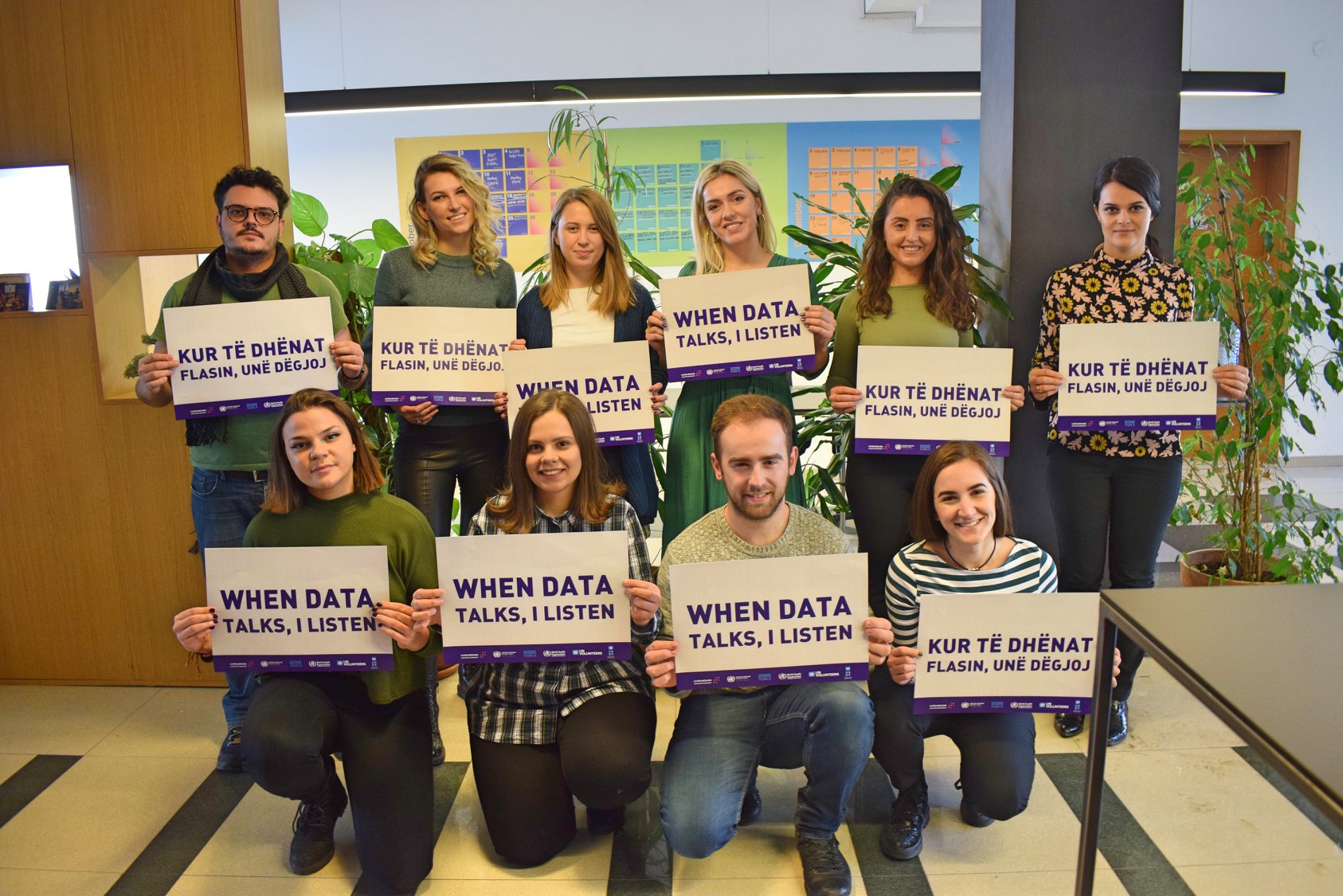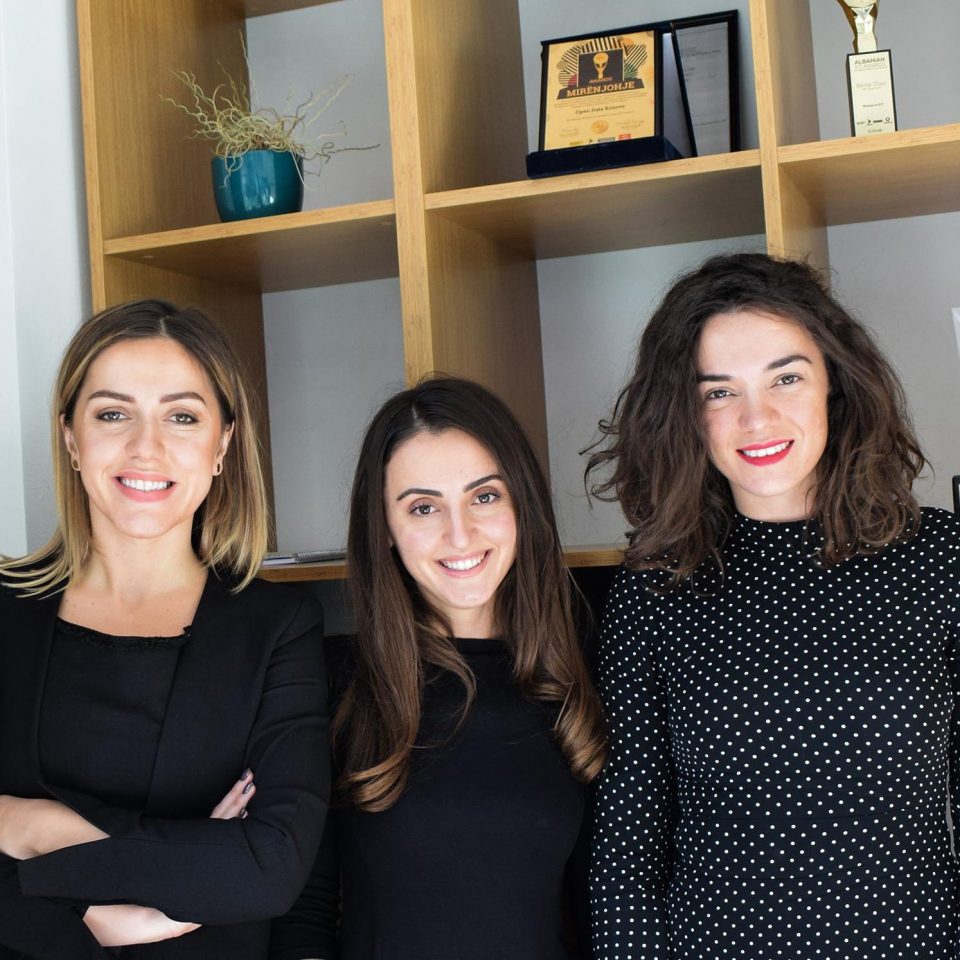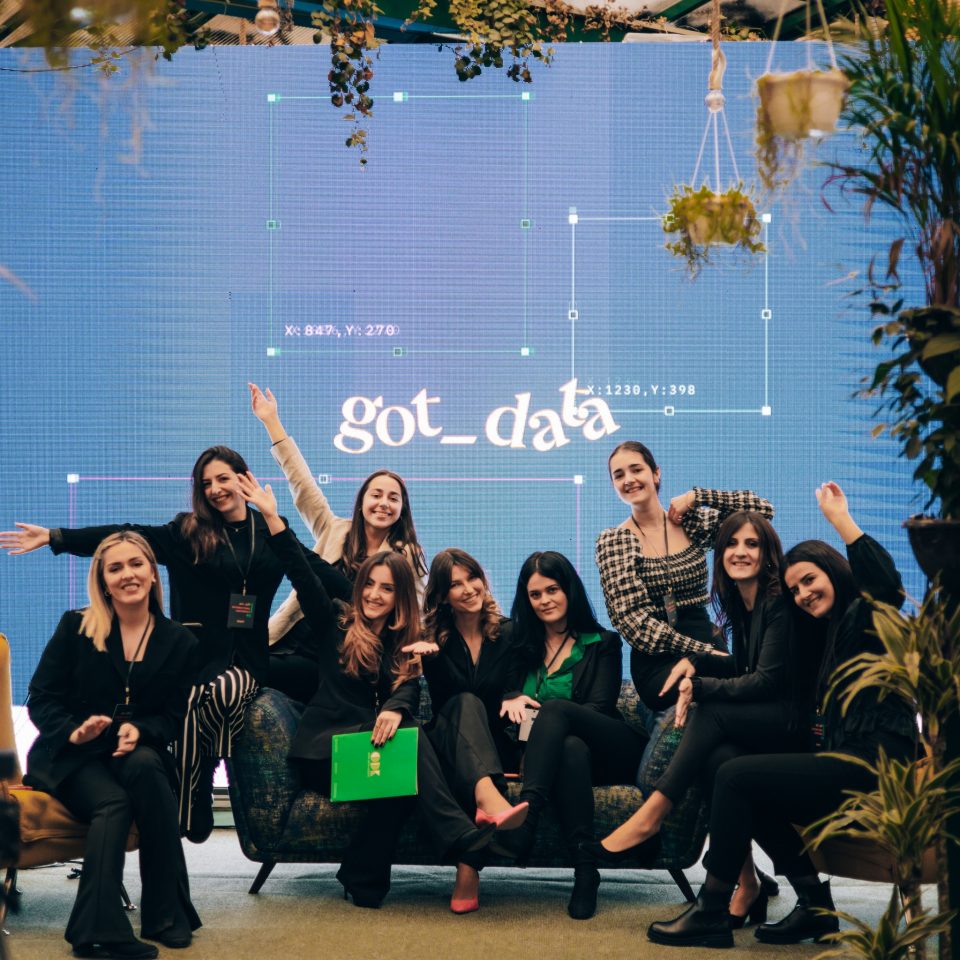
“Marriage is traditionally the destiny offered to women by society,” wrote Simone de Beauvoir in her 1949 treatise The Other Sex. Seventy-two years later and many women continue to face social pressure forcing them to decide: family or career?
No society has achieved full gender equality. According to research by Plan International, “even in the most gender-equitable countries in the world, harmful and discriminatory gender norms will continue to hamper girls and women until 2030, and even later.”
Even after getting a job in their profession, many women from Kosovo begin to lose or minimize their ambitions, even those with qualifications. Often, just earning money for oneself can seem like a big step. Kosovo society, however, is one that encourages change and ways to break free of the shackles of stereotypes.
Blerta Thaci is the Executive Director of Open Data Kosovo (ODK) and the founder of Girls Coding Kosovo. Its main goal is to help Kosovo’s youth build their capacity in the technology industry. Her ambition is to contribute to the formation of ‘smart institutions’ that will provide high quality services to the citizens of Kosovo.

A Unique Opportunity for Girls and Women
As the Executive Director of the ODK, Blerta has always encouraged young women to participate in the events and workshops they have organized, and has provided internship opportunities to numerous participants. She studied electrical engineering and computer engineering at the University of Priština and then won the FIDES Award for Philanthropy in 2016 and the Women in ICT Award in 2017. She was previously listed in Forbes’ ‘30 Under 30’ for her work on Open Data Kosovo, which recognized the organization as one of the most successful initiatives to contribute to improving law and policy-making in Europe.
ODK team consists of software developers, program managers, financial officers and marketers, and they are mostly women.
“Several colleagues and I started a software development company while we were studying. That company became very successful and I worked there for five years. I say ‘successful’ because it was constantly growing, but the team consisted only of men. Even though they supported me and even though I was privileged in the company, because I was one of the few women there, it inspired me to think about why we have a shortage of women in the IT field,” says Blerta Thaci.
From there, the idea for the Girls Coding Kosovo initiative was born. Blerta also started cooperating with Open Data Kosovo, which she later joined.
“I did this voluntarily. We gathered a lot of people, mostly girls, who wanted to learn how to code. I first started as a project manager in ODK and, after a year, was nominated to lead the organization. I was chosen by the board as executive director,” she adds.
Technology as a Public Good
The organization was founded by Canadian George Labreche, who found himself in Kosovo working on his master’s thesis. He found that the biggest problem he encountered was a lack of access to data. “After three years, having completed the greatest part of his mission, he gathered together a team of local people from Kosovo. He joined the board to support the organization, but left everything else to the care of the people of Kosovo,” says Blerta.
Similarly, Girls Coding Kosovo is another technology-oriented organization that was born out of necessity and is all about bringing people together. Prompted by the situation and the stigma they experience, women from Kosovo are taking the opportunity to realize their own accomplishments, in line with the times in which we find ourselves.
Blerta says the idea behind Girls Coding Kosovo was to create a community that inspires girls to join technology-oriented jobs and to create a place where women can develop their ideas. Both Girls Coding Kosovo and ODK work on the use of technology for the public good.

“For me, as a software engineer, it was very interesting to find myself on this career path. I find it very fascinating how you can build open access data technology and then give people access. It was not just technology, but much more than that, and that is why I continued my career with ODK. I left Girl Coding Kosovo to the capable hands of women who know how to use their opportunity to create new ones,” explains Blerta.
More than 70 percent of Kosovo’s population is under the age of 30. The only industry with a positive balance is IT. Blerta says that she wanted girls in rural areas and cities outside Priština to consider career opportunities in the industry.
“I just wanted to let them know that there are a lot of open positions and demand in the market and that they can take advantage of that, that they can think about studying in this field or take some classes or trainings and learn to code. We worked on a lot of projects and people started to understand why we started this. But with each new beginning, people have a lot of questions,” she explains.
Blerta is proud of the fact that she has a team made up mostly of women programmers and project managers.
A Thriving Community
“We do everything in the technological sphere, which is very inspiring. I can see that trends are changing as well. This profession is becoming more recognizable, and people are taking it more into consideration, especially women. I have a feeling that this means that things are changing for the better,” Blerta adds.
ODK is a haven for the young generations who want to make a difference through new, up-to-date ways of working. They regularly hold a boot camp for new members, where team members and lecturers share experiences and knowledge gained during previous projects. Before the Coronavirus pandemic, the organization’s premises were used to organize a whole host of meetings and events. In fact, people could come and visit at any time: their door was wide open for anyone. Generally, the space is used on weekdays for project work and on weekends workshops and educational events are organized there.
“Bootcamp is now held virtually. It is very successful and participants often tell us that it inspired them and that they learned more than they did during a whole year at university. It helps to clarify concept and ideas for them, and thanks to this they are able to produce the right projects for their portfolio,” explains Blerta.
She adds that the Government is not always ready to make a technological transition and respect the importance of the profession in which she works. It was the fact that the pandemic took away a number of opportunities that meant they had the opportunity to realize the importance of having data available in a digital format.
For ODK’s Executive Director, accessibility and community are paramount. “Even now that we have moved to a virtual space, we have a lot of open calls and we try to avoid bureaucracy. There are many ways people can become part of our community,” says Blerta.





